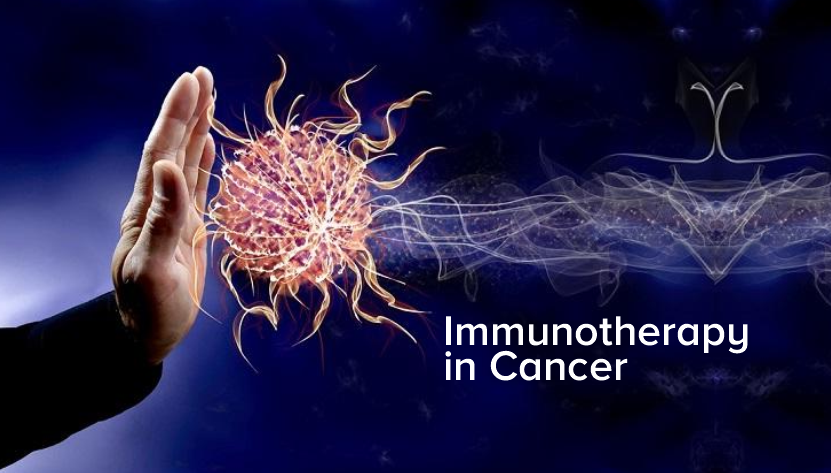With cancer immunotherapy, malignant cells are located and eliminated by your body’s immune system. Immunotherapy comes in a variety of forms, but all of them function by enhancing your immune system’s capacity to combat cancer. Some cancer patients may be able to survive longer with immunotherapy.
Immunotherapy for cancer is one of the best treatment options, and people can overcome the deadly disease of cancer with this. In immunotherapy, your body will act as the defense system to protect it from a deadly disease like cancer.
Cancer is a complicated disease that has the ability to outsmart and elude the immune system. Frequently, it goes unnoticed until it gets too tough to manage. Immunotherapy can enhance an immune system’s capacity to recognize and eliminate cancerous cells.
In this blog, you will get to know about everything related to immunotherapy and how it is helpful in treating cancer:
What is Immunotherapy?
Immunotherapy is a cancer treatment that locates and eliminates cancer cells by stimulating your body’s immune system. Your immune system recognizes foreign objects and eliminates them, including malignant cells. Immunotherapy increases the ability of your immune system to identify and eliminate cancerous cells.
One highly effective cancer treatment that may extend a patient’s life is immunotherapy. New immunotherapy medications are being developed by medical experts to treat various cancer kinds.
How Does Immunotherapy Work?
The daily function of your immune system is to defend your body against foreign invaders, such as viruses, allergies, and potentially malignant cells. It possesses unique cells that continuously scan your body for invaders.
They eliminate any damaged or malignant cells they come across. This prevents malignant tumors from proliferating and dispersing.
Cancer, however, is a changing target. Malignant cells are always trying to find methods around the immune system’s protections. The way immunotherapy functions is by:
- Enhancing the ability of your immune system to recognize and eliminate cancer cells.
- Assisting your body’s production of immune cells that fight cancer and are capable of finding and eliminating cancer cells.
Cancer treatment with Immunotherapy
Many forms of metastatic cancer, or cancer that has spread, are treated with immunotherapy as a first-line or primary treatment by medical professionals. Immunotherapy may be used in conjunction with targeted therapy, chemotherapy, or other cancer treatments.
Different forms of immunotherapy are used by healthcare providers to treat various cancer types. Different components of your immune system are used by each type of immunotherapy.
Types of Immunotherapy
The different types of immunotherapy includes:
- Checkpoint inhibitors
- Cancer vaccines
- Adoptive cell therapy (T-cell transfer therapy)
- Immune system modulators
- Monoclonal vaccines
Checkpoint Inhibitors
Your immune system is a strong protection mechanism, perhaps too strong at times. There are checkpoints in your body that prevent your immune system from responding to foreign invaders and causing harm to healthy cells.
For instance, T lymphocytes, or T-cells, are white blood cells produced by your bone marrow. T-cells fight cancer cells and shield your body from infection. Immune checkpoints attach themselves to T-cell surface proteins.
This type of immunotherapy can treat different types of cancers such as:
- Esophageal cancer
- Bladder cancer
- Cervical cancer
- Hepatocellular carcinoma
- Head and neck cancer
- Kidney cancer
- High-risk triple-negative breast cancer
- Melanoma
- Non-small cell lung cancer
- Mesothelioma
Cancer Vaccines
Vaccines shield your body from certain diseases. Certain vaccinations, like the HPV vaccine, guard against an infectious condition that has been connected to penile, throat, and anal malignancies. These vaccinations shield you from infections that may cause cancer in the future.
Vaccines against cancer do not stop cancer. However, cancer vaccines prepare your body to combat cancer should it arise.
Adoptive cell therapy (T-cell transfer therapy)
The ability of your immune system to eliminate malignant cells is enhanced by this treatment. In a lab, medical professionals take your immune cells and cultivate them.
The healthcare providers reintroduce your cells into your body once they have grown so they can eradicate malignant cells. The two primary forms of T-cell transfer therapy are CAR T-cell therapy and tumor-infiltrating lymphocyte therapy.
Immune System Modulators
Substances known as immunomodulators strengthen your body’s defenses against cancer. BCG, cytokines, and immunomodulatory medications are examples of immune system modulators.
- Cytokines
Proteins called cytokines control how your immune system reacts to invaders, such as malignant cells. They aid in controlling the development and activity of blood and immune cells.
Cytokines, for instance, let your immune system know when to deal with invaders like malignant cells. They facilitate the immune system’s cells’ ability to communicate with one another and plan coordinated attacks on particular malignant targets.
By delivering signals that may prolong the life of healthy cells and cause cancerous cells to perish, cytokines also aid in the destruction of cancerous cells. Medical professionals use two distinct cytokines to treat cancer:
- Interferons:
Interferons aid the immune system in combating cancer and inhibit the spread of cancer cells. Interferons produced in laboratories can be used by medical professionals to treat a wide range of cancer kinds.
- Interleukins:
These proteins facilitate communication between immune system cells and initiate an immunological response. The interleukin IL-2, in particular, causes your body to produce more white blood cells. This includes the cancer-fighting T- and B-cells. Similar to interferons, doctors may treat cancer, particularly melanoma and kidney cancer, with lab-made interleukins.
Immunomodulatory Drugs (Biologic Response Modifiers):
Biologic response modifiers, another name for immunomodulatory medicines, are treatments that strengthen your immune system. Certain medications prevent malignant neoplasms from forming new blood vessels. These medications may be used by medical professionals to treat patients with advanced lymphoma. Immunomodulatory drugs include:
- Pomalidomide (Pomalyst®).
- Lenalidomide (Revlimid®).
- Thalidomide (Thalomid®).
- Imiquimod (Aldara®, Zyclara®).
Lenalidomide, pomalidomide, and thalidomide induce the release of IL-2 from cells. IL-2 aids in the production of more white blood cells by your body to combat cancer.
The three medications also slow the growth of malignant tumors. They achieve this by stopping the tumors from forming the new blood vessels that they require to continue spreading. Imidaclovir, another immunomodulatory medication, causes cells to secrete cytokines.
Immunomodulatory medications, such as pomalidomide (Pomalyst), lenalidomide (Revlimid), and thalidomide, activate your immune system. These medications also prevent myeloma cells from being fed by newly formed blood vessels.
Both lenalidomide andthalidomide are authorized for the treatment of newly diagnosed patients. Recurrent myeloma can also be effectively treated with pomalidomide and lenalidomide. These medications boost immunological function. Some drugs functions to stop cancerous tumors from making new blood vessels.
Immunotherapy Side Effects
Immunotherapy causes adverse effects that can interfere with daily life, just like most cancer treatments do. Your body as a whole is protected by your immune system. Immunotherapy alters your immune system to make the process of combating cancer more successful.
However, immune cells have the potential to assault healthy cells, inflaming the surrounding tissue. This is an adverse event connected to immunity or irAE. Severe irAEs occur in about 20% of immunotherapy recipients. Some of the side effects of immunotherapy include:
- Diarrhea
- Itchy rash
- Fatigue
- Decreased thyroid hormone levels
- Nausea and vomiting
If you are receiving immunotherapy without any insurance plan, then the cost of immunotherapy will be more than $100,00 for a single patient.
Contact Fuse Infusion for Immunotherapy
Cancer immunotherapy boosts your immune system’s ability to identify and eliminate malignant cells. For many cancer types, immunotherapy is a viable treatment option, but not for all cancer types. Talk with your healthcare physician if you have cancer and are curious about the potential benefits of immunotherapy. Your greatest source of information is them.
Well, we at Fuse Infusion offers immunotherapy therapy treatment for cancer with specialized drugs. We offer treatment to our patients in a safe and secure setting. Contact us today to know more about immunotherapy!

